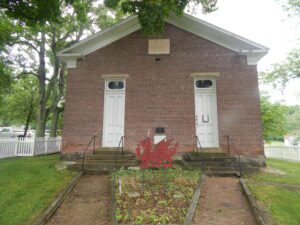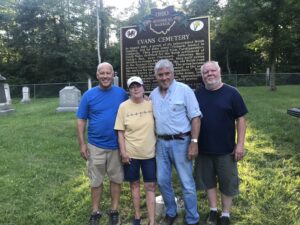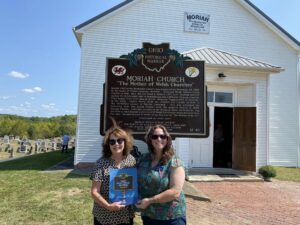, OH
In 1972 a group of Welsh-Americans chartered the Welsh-American Heritage Museum to preserve Welsh history and culture, and to preserve the Welsh Congregational Church. The old brick church was where songs of praises rang, as the Welsh gathered and sang beloved hymns of their homeland in four-part harmony. The church is a link in a long, unbroken chain of memories and still serves the community as a center of Welsh-American activities and a keeper of the community’s heritage. The red dragon and daffodil are symbols of Wales.
, OH
In August 1818, a group of six interrelated Welsh families, led by John Jones (Tirbach) landed in Gallipolis. They journeyed from Cardiganshire, South Wales destined for the Welsh settlement at Paddy’s Run, near Cincinnati. Following their decision to remain here instead, they built cabins in the Symmes Creek Valley on the old Welsh road between Centerville and Oak Hill. The group became the nucleus for later Welsh settlement, as the area became known as “Little Cardiganshire.” Evans Cemetery is on land set aside by John Jones, later owned by grandson Timothy Evans. Approximately 50 souls lie here, several in unmarked graves.
, OH
Moriah Calvinistic Methodist Church was organized on November 23, 1835, in the home of Daniel Edwards, Brynele. Although Welsh settled Gallia County in 1818, they did not build a church until more families arrived during the 1830s Welsh tide of immigration into Gallia and Jackson counties. They named their new church Moriah, meaning “appearance of Jehovah” in the Bible. Joshua Parry built the original log church in 1836 in the northwest corner of Moriah Cemetery. This was enlarged the following year and Enoch Thomas built the present church in 1846. Moriah Church, centrally located in the growing Welsh settlements, was the first in what became a circuit of 12 Welsh Calvinistic Methodist churches. For this, Moriah Church is known as Ein Mam ni oll or “the Mother of Us All.” (Continued on other side)




